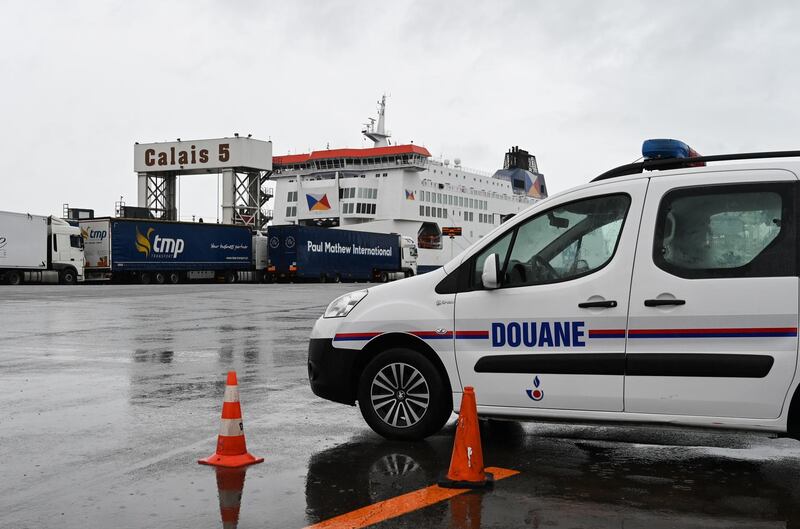British military personnel could be sent to the French port of Calais if the country leaves the European Union without a deal on October 31.
The Sunday Times reported some 50 soldiers may be sent to the vital port linking Britain to Europe to process paperwork and check lorries boarding ships or the channel tunnel under plans being made by the UK Ministry of Defence.
Senior military sources revealed the initiative was being considered as part of Operation Redfold, the code name for Ministry of Defence plans to prepare for no-deal. Cross-government contingencies for the UK leaving the EU at the end of October have been developed under the auspices of so-called Operation Yellowhammer.
The British government is reportedly also planning for civil unrest in the event that Britain leaves the EU without a deal or if it does not leave the European bloc at all at the end of next month.
British prime minister Boris Johnson has said the UK must leave the EU “do or die” at the end of October. Strife in the UK parliament and Mr Johnson’s failure to broker a new exit deal with European leaders has meant a no-deal Brexit in a matter of weeks or the need for a new EU extension both look possible.
Each outcome is deeply unpopular with either one or the other of two opposing and increasingly polarised sides of the Brexit debate in the UK.
The British response to possible unrest is reportedly being modelled on French government tactics for dealing with the gilet jaune protests that have swept the country in recent months. The growth of the anti-establishment movement led to outbreaks of violence and destruction of property in a number of French cities including the capital Paris.
At the end of 2018, the government of Mr Johnson’s predecessor Theresa May announced that as many as 3,500 members of the armed services would be put on standby in the event of a no-deal Brexit.
British cabinet minister Michael Gove, who has been empowered to ready the UK for a no-deal Brexit as chancellor of the Duchy of Lancaster, had, at least to begin with, sought to de-emphasise the military dimension of the plans. There had been fears in the UK government that the use of soldiers in the event of Brexit-related civil unrest could intensify public fears.
The Sunday Times reported the majority of service members sent to the French port would likely be soldiers from the Royal Military Police. They would be supported by a small team of translators if deployed to Calais.
Publicly, the MoD has denied reports of UK troop deployments to the port city.
French authorities have also been preparing for a no-deal Brexit, carrying out rehearsals and inspecting customs documents and shipments arriving from Britain.
Some 700 new officials, including 270 officers in the region around Calais, have been hired in anticipation of a no-deal Brexit. Six million euros have been spent on new infrastructure at the port in preparation.
The prospect of a no-deal Brexit has sparked fears that logistical pressures on Britain’s ports could lead to disruptions and critical food and medicine shortages on the island nation.
Following the expiration of two Brexit deadlines, the increased chance of a sudden departure brings with it the imposition of trade tariffs and customs checks with Europe for first time in decades.
In a worst-case scenario Operation Yellowhammer outlines that lorries seeking to enter Europe at Calais could face delays of two-and-a-half days with knock-on supply disruptions possibly lasting for months.






